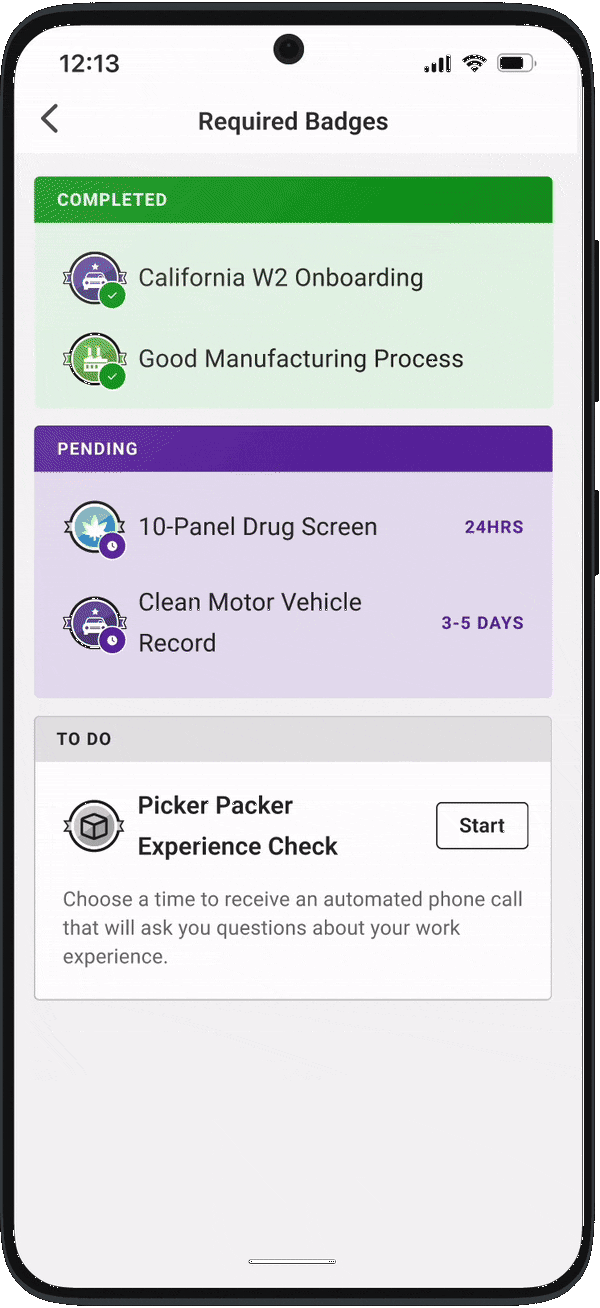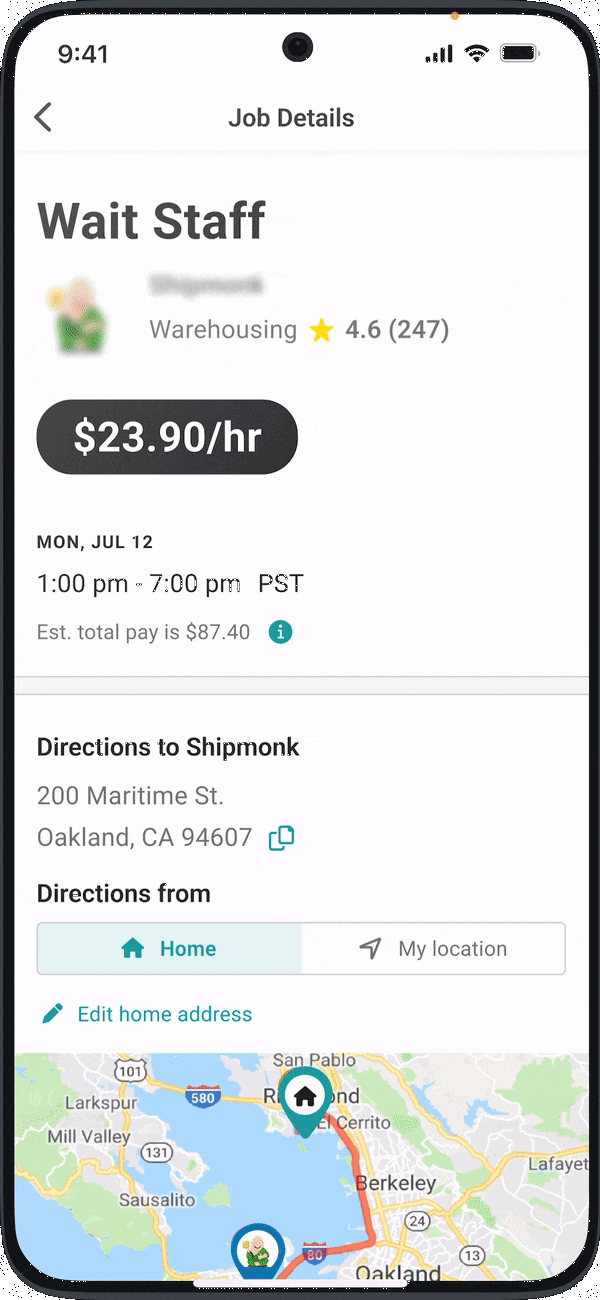Hi I’m Corin,
I’m a product designer based in Nashville.
For the past two years I’ve been at Wonolo, a platform that helps workers get connected with jobs. I led mobile design for iOS and Android as we transitioned into a $500B long-term work market.
Before that, I was at Pocketlab making science education more accessible and engaging for students.
With a formal education in classical music, I’m particularly drawn to projects that require a high degree of complexity, precision, and craft.
Outside of work, I record and play French Horn – collaborating with artists, playing on soundtracks, experimenting with electronics, and playing with my dog, Moose.
Recent Projects
Wonolo – Project 1
Native W-2 Onboarding
Making long-term employment easier for workers and employers.
As employers grew more cautious post-pandemic, many of our customers, who had relied on 1099 workers, saw the need to shift to W-2 employees for better protections and benefits. To support this transition and enter new markets, we quickly integrated a third-party W-2 onboarding solution while we built a long-term in-app option.
Key Problems and Solutions
Simplifying tax forms
Filling out W-4 forms is challenging and time consuming. User interviews revealed that the biggest frustration was understanding and completing complex tax documents on a phone quickly.
I simplified the process by breaking each tax form into small steps with clear indication of how much time was left to complete them.
User value
Preemptively onboarding users
User research showed that workers were highly motivated to complete W-2 onboarding if it meant that jobs might open up in the future.
This insight enabled us to put the W-2 onboarding experience in front of workers before we had any jobs available in their market giving us a pool of qualified workers. Sales could then confidently approach customers in that market and say, “Hey, we have 2,500 W-2 onboarded workers ready to go.”
Business and sales value
Creating a Modular Architecture
Developing a native W2 solution was a major engineering challenge, estimated to take almost a year. We needed to transition quickly from our costly third-party solution.
I designed a modular approach, starting from a progress screen and branching users through each separate flow from there. This architecture enabled us to build, test, and refine each portion individually, delaying the launch of the more complex sections until thorough testing was complete.
Developer value
Prioritizing Transparency
I-9, Federal W-4, and state tax documents are often riddled with discrepancies and inefficiencies, despite containing crucial and legally actionable information!
I worked closely with our legal team to create a solution that prioritized transparency, providing users access to all relevant information while only displaying what was necessary at each step.
Legal value
Making it easier to find the right job
Wonolo – Project 2
We reduced job withdrawals and better prepared workers for their jobs by improving transportation information, worker screening, and job descriptions.
User Research
After months of conducting usability tests, user interviews, focus groups, and analyzing behavioral data, we honed in on three primary areas of improvement.
Transportation
25% of job withdrawals were due to transportation challenges, often linked to unclear expectations around distance or public transit routes.
Employers felt they were spending far too much time vetting workers due to the inconsistent quality of long-term workers.
Worker Screening
Both employers and workers pointed to a lack of clarity in the job form, contributing to unprepared workers.
Unstructured Job Forms
Design Solutions
Clarifying job location and transportation options
One in four workers lack access to a vehicle, so we needed to show not just driving times but also public transit and walking times.
This new maps design led to a 15% decrease in transit related job withdraws.
Transportation
Automating the worker screening process
Long-term workers need stricter vetting, including phone screenings to match employer expectations. But this results in a a massively increased workload for employers.
We implemented AI phone screenings to vet workers instantly, anytime, reducing the employer’s cost overhead.
Worker Screening
Improving worker-to-employer match algorithm
We undertook a year-long overhaul of our job form, adding structured data on the employer side to ensure consistent information for workers.
This allowed us to track worker success metrics and improve our match algorithm, leading to better worker-employer matches.
Unstructured Job Forms









